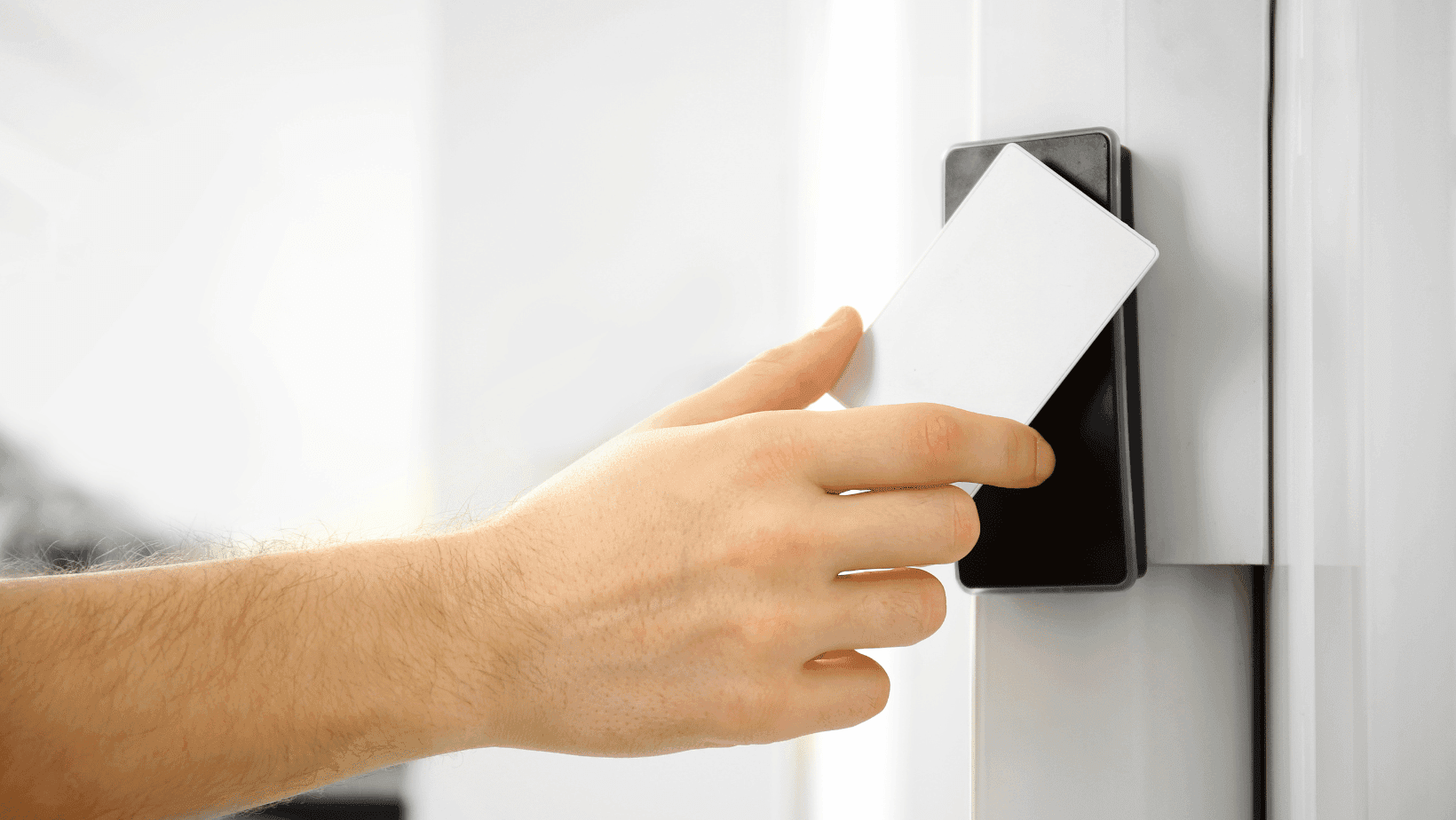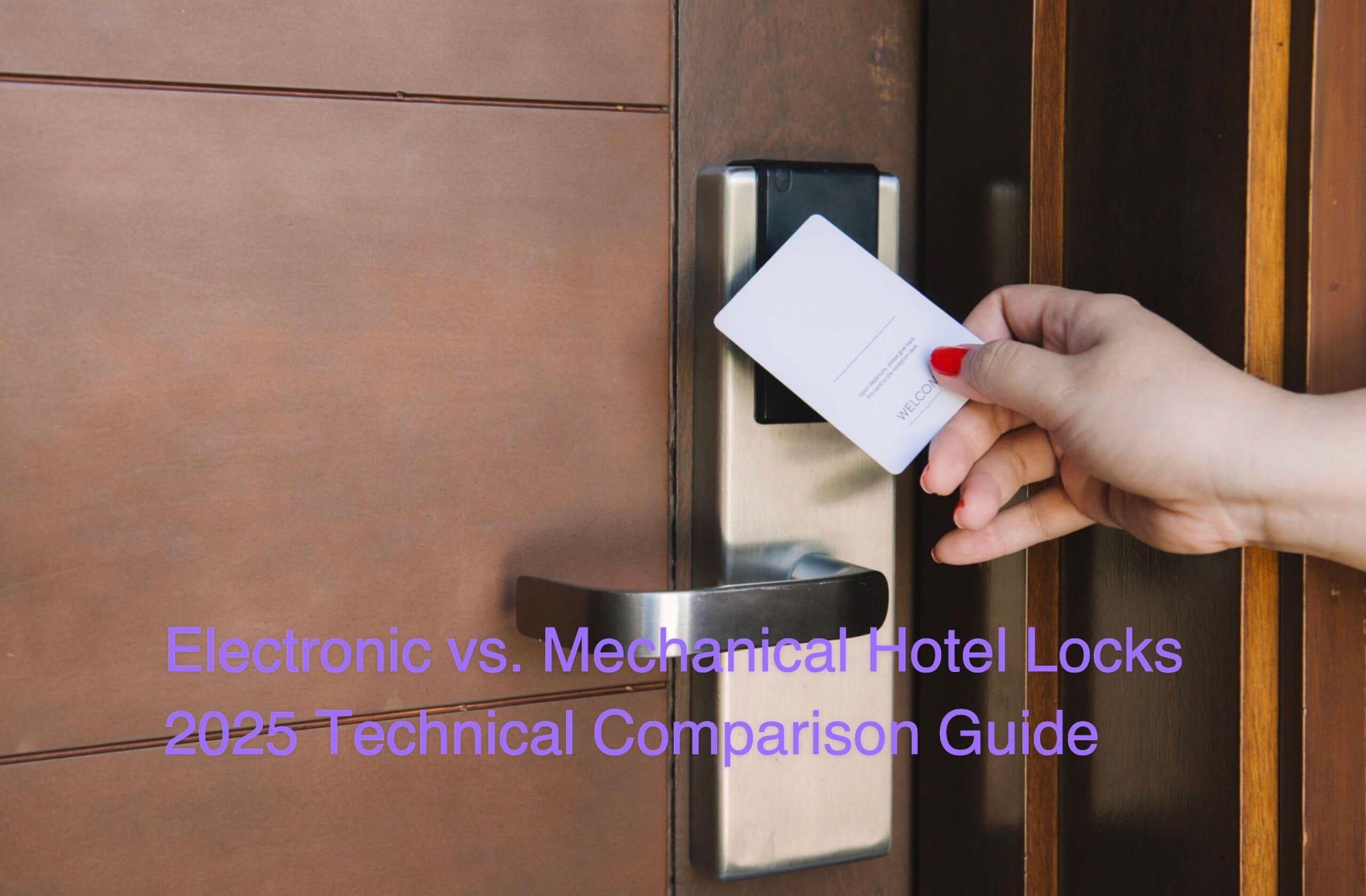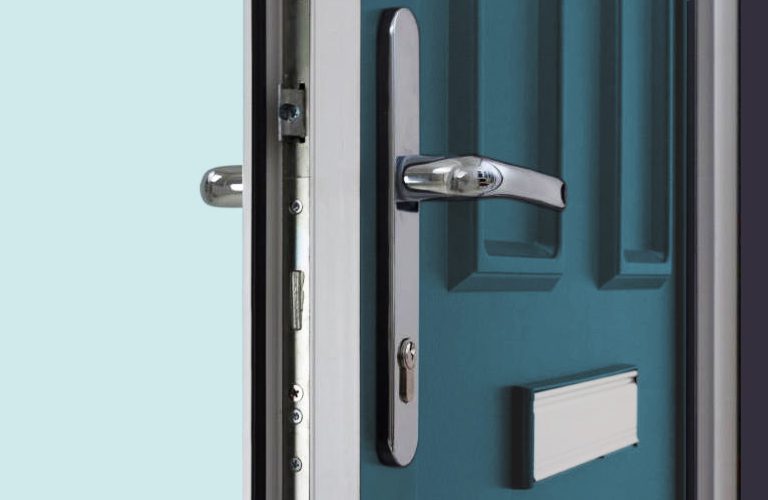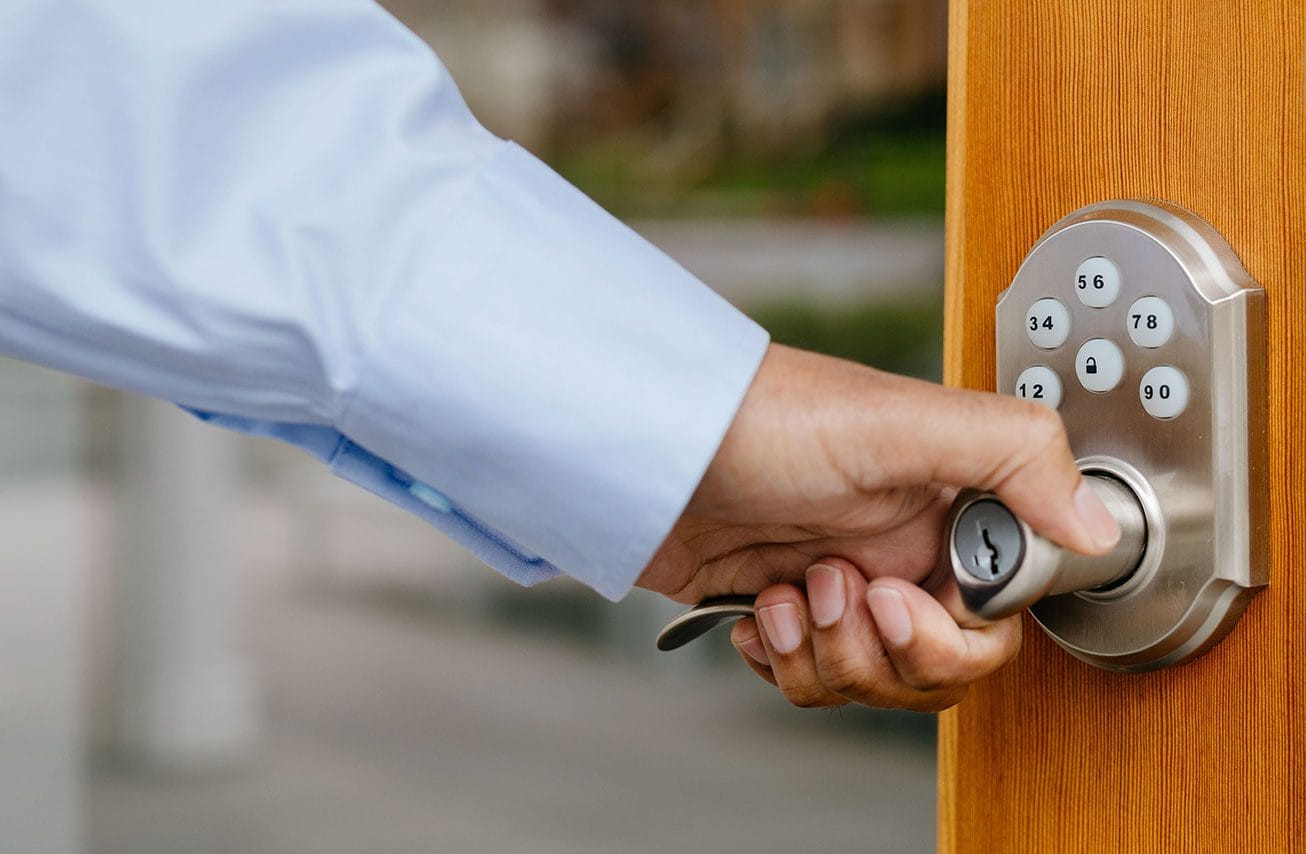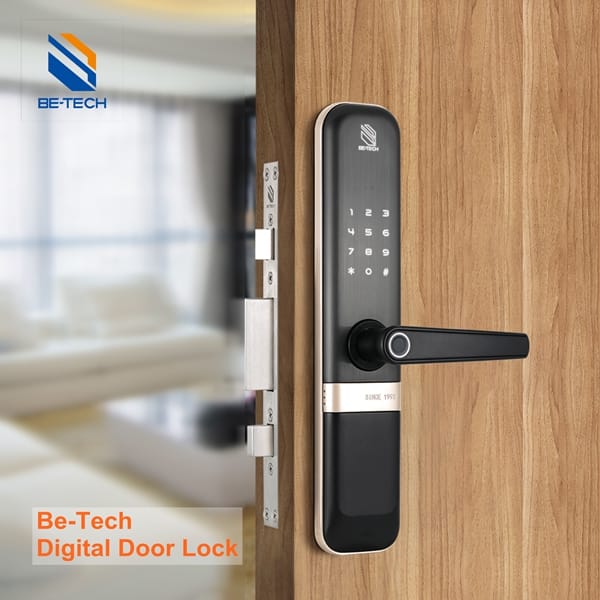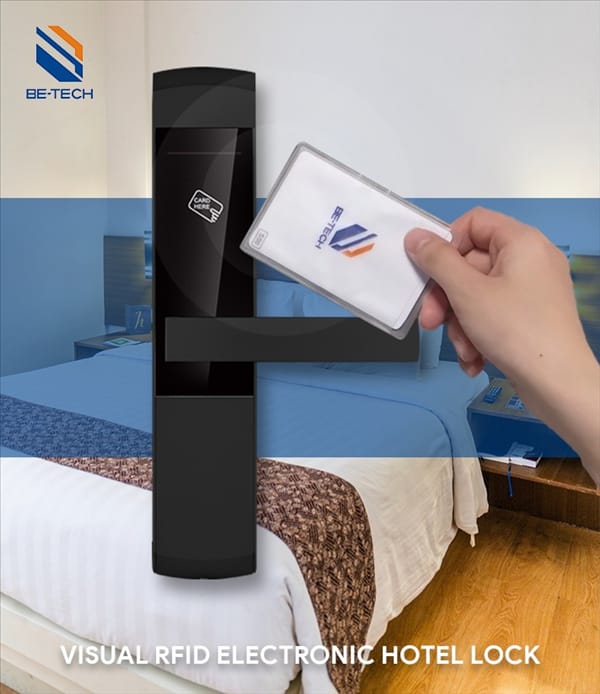In the hospitality industry, hotel door locks play a crucial role in maintaining the safety and security of guests. These locks serve as the first line of defense against unauthorized access, protecting guests’ belongings and providing peace of mind during their stay. However, like any technology, hotel door locks can encounter various issues that may compromise their effectiveness and impact guest satisfaction. This article delves into the common problems associated with hotel door locks, offers troubleshooting strategies, and highlights innovative solutions from Be-Tech Lock, a leading provider of advanced locking systems for the hospitality industry.
Understanding the Evolution of Hotel Door Locks
Hotel door locks have undergone a significant transformation over the years, evolving from traditional mechanical locks to sophisticated electronic and smart locking systems. These advancements have not only enhanced security but also improved the overall guest experience by providing convenience and ease of use.
Types of Hotel Door Locks:
Mechanical Locks: The traditional option, often less secure and prone to key-related issues.
Electronic Locks: Require a keycard or code, offering better security and easier management.
RFID Locks: Use radio frequency identification technology for enhanced security and convenience.
Smart Locks: Integrate with mobile devices, allowing for keyless entry and remote management.
To explore the latest advancements in hotel security, check out our article on 10 Must-Have Hotel Security Technologies for 2024.
Common Problems with Hotel Door Locks
Despite the technological advancements in hotel door locks, various issues can still arise, leading to guest dissatisfaction and potential security risks. Understanding these common problems is crucial for hotel management to address them effectively and maintain a secure environment for guests.
Incorrect Installation: Poorly installed locks can lead to misalignment, making it difficult for guests to open doors. This issue can be particularly frustrating for guests, especially after a long day of travel, and may even result in safety concerns if the lock is not functioning properly.
Battery-Related Problems: Electronic locks often rely on batteries, which can drain unexpectedly, leaving guests locked out. This problem can occur at any time, day or night, and can be especially problematic if the hotel staff is not readily available to assist guests.
Card-Related Issues: Guests may encounter problems with expired or demagnetized keycards, leading to frustration and delays in accessing their rooms. This issue can be exacerbated by factors such as proximity to electronic devices or magnetic fields, which can inadvertently demagnetize the cards.
Mechanical Failures: Components such as latch bolts may malfunction, preventing doors from locking or unlocking properly. This problem can compromise the overall security of the hotel and may require immediate attention from maintenance staff.
Misalignment of Door Handles: Over time, door handles can become misaligned, causing operational difficulties for guests. This issue can be particularly troublesome for guests with physical disabilities or those carrying heavy luggage, as it may require additional effort to open the door.
Troubleshooting Techniques
When faced with door lock issues, hotel staff should be equipped with effective troubleshooting techniques to resolve problems promptly and minimize guest inconvenience. By following these steps, hotel staff can address common lock problems efficiently and maintain a high level of guest satisfaction.
Check the Installation: Ensure that the lock is properly aligned and securely mounted. This step involves visually inspecting the lock and door to identify any misalignment or loose components.
Replace Batteries: Regularly check and replace batteries in electronic locks to prevent unexpected failures. Hotel staff should maintain a stock of compatible batteries and be trained on how to replace them quickly and efficiently.
Inspect Keycards: Verify that keycards are functioning correctly and educate guests on how to avoid demagnetization (e.g., keeping cards away from phones, magnets, and electronic devices). If a keycard is not working, staff should be able to quickly identify the issue and provide a replacement card or alternative solution.
Address Mechanical Issues: For mechanical locks, inspect and lubricate moving parts to ensure smooth operation. This step may require specialized tools and knowledge, and hotel staff should be trained on basic lock maintenance procedures.
Realign Door Handles: If handles are misaligned, adjust them to ensure proper functionality. This process may involve loosening screws, realigning the handle, and tightening the screws back into place.
Preventive Measures
To minimize the occurrence of lock problems and ensure the long-term reliability of hotel door locks, it is essential to implement preventive measures. By taking proactive steps, hotel management can reduce maintenance costs, enhance guest satisfaction, and maintain a secure environment for all occupants.
Regular Maintenance: Schedule routine inspections and maintenance of locking systems to identify and resolve issues before they affect guests. This may include checking for proper installation, battery levels, and overall functionality of the locks.
Staff Training: Equip staff with the knowledge to troubleshoot common lock problems effectively. Provide training on lock maintenance, battery replacement, and guest communication to ensure a smooth resolution process.
Upgrade Lock Systems: Consider investing in advanced locking solutions, such as those offered by Be-Tech Lock, which provide enhanced security features and reliability. Upgrading to modern locks can reduce maintenance costs, improve guest satisfaction, and future-proof the hotel’s security infrastructure.
Be-Tech Lock Innovations
Be-Tech Lock stands at the forefront of hotel locking technology, offering a wide range of innovative products designed to meet the evolving needs of the hospitality industry. Their extensive product line includes:
Mechanical Locks: Be-Tech Lock offers a variety of mechanical locks, including mortise locks, cylindrical locks, and deadbolts, designed for durability and ease of installation.
Electronic Locks: Be-Tech Lock’s electronic locks feature advanced security measures, such as encrypted communication and secure access control, ensuring the safety of guests and staff.
RFID Locks: Be-Tech Lock’s RFID locks utilize radio frequency identification technology to provide a convenient and secure access solution for hotel guests. These locks are compatible with various types of RFID cards and tags, offering flexibility and ease of use.
Smart Locks: Be-Tech Lock’s smart locks integrate seamlessly with mobile devices, allowing guests to access their rooms using their smartphones. These locks offer keyless entry, remote management, and real-time monitoring capabilities, enhancing the overall guest experience.
Accessories: Be-Tech Lock offers a range of accessories, including door handles, strikes, and lock boxes, to complement their locking systems and provide a complete security solution for hotels.
For more information on modern hotel locking systems, visit our article on 5 Superior Hotel Door Locks for 2024.
Conclusion
In the hospitality industry, hotel door locks play a vital role in ensuring guest safety and satisfaction. While these locks are essential for security, they can face various challenges that may impact their effectiveness. By understanding common lock problems, implementing effective troubleshooting techniques, and investing in innovative solutions like those offered by Be-Tech Lock, hotel management can maintain a secure and seamless guest experience.
Be-Tech Lock’s advanced locking systems feature cutting-edge technology, user-friendly interfaces, and remote management capabilities, making them an ideal choice for hotels looking to enhance their security and operational efficiency. By partnering with Be-Tech Lock, hotel owners and managers can stay ahead of the curve, providing their guests with the highest level of safety and comfort.
As the hospitality industry continues to evolve, it is crucial for hotels to prioritize the maintenance and upgrade of their door lock systems. By doing so, they can foster a secure and welcoming environment for guests, ultimately leading to higher satisfaction, loyalty, and positive word-of-mouth referrals.


